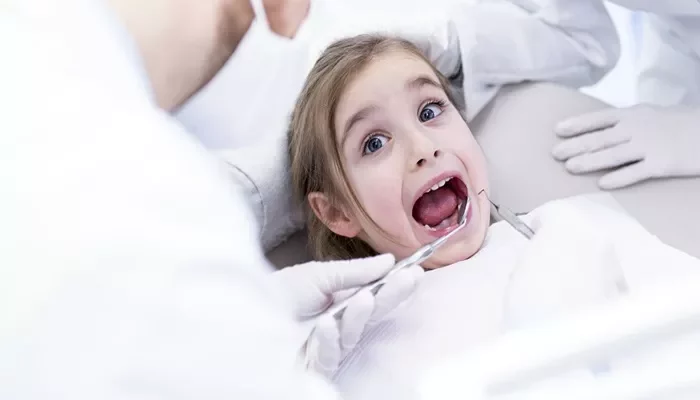In the realm of pediatric dentistry, ensuring effective oral hygiene practices is paramount to preventing dental diseases such as cavities and gingivitis. One of the cornerstones of oral hygiene is regular and thorough brushing. However, children often struggle with maintaining proper brushing techniques and durations, leading to inadequate oral cleanliness. Smart dentistry, with its innovative technologies and devices, offers promising solutions to enhance children’s brushing efficiency. This article aims to explore how smart dentistry can improve children’s brushing habits, ensuring better oral health outcomes.
Smart Toothbrushes: The Future of Brushing
Smart toothbrushes are one of the most significant advancements in children’s oral hygiene. These devices incorporate advanced sensors, microprocessors, and connectivity features to provide real-time feedback and guidance during brushing. Unlike traditional toothbrushes, smart toothbrushes can track brushing patterns, pressure, and duration, ensuring that children are following proper techniques.
One of the key features of smart toothbrushes is their interactive nature. Many models come equipped with LED lights or visual displays that guide children to brush each tooth thoroughly. These devices often have built-in timers that ensure children brush for the recommended two minutes, breaking the process down into manageable 30-second intervals for each quadrant of the mouth.
Moreover, smart toothbrushes can provide personalized feedback based on individual brushing habits. Some models use sensors to detect excessive pressure, which can damage tooth enamel and gums. When children apply too much force, the toothbrush may vibrate or emit a warning sound, prompting them to adjust their technique. This real-time feedback helps children develop and maintain proper brushing habits over time.
In addition to interactive features, smart toothbrushes often come with companion apps that offer further customization and engagement. Parents can use these apps to monitor their children’s brushing habits, receive reports on brushing efficiency, and set goals and rewards to encourage better oral hygiene. These apps can also provide educational content, such as games and quizzes, to make brushing more enjoyable and informative for children.
Smart Mouthwashes and Rinses
While smart toothbrushes focus on technique and duration, smart mouthwashes and rinses can complement brushing by providing additional antimicrobial benefits. These products often contain special formulations that target harmful bacteria in the mouth, reducing the risk of cavities and gum disease.
Smart mouthwashes may incorporate pH sensors to detect changes in the oral environment. An acidic pH level can indicate the presence of harmful bacteria, prompting children to use the mouthwash more frequently or to take additional steps to neutralize the acidity. By monitoring and adjusting oral pH levels, smart mouthwashes can help maintain a healthy oral microbiome, further enhancing brushing efficiency.
Moreover, some smart mouthwashes come with companion apps that offer personalized recommendations based on individual oral health data. These apps can analyze brushing habits, dietary intake, and other factors to tailor mouthwash use to each child’s unique needs. This personalized approach ensures that children receive the most effective oral hygiene regimen possible.
Smart Mirrors and Dental Monitors
Smart mirrors and dental monitors are another innovative way to improve children’s brushing efficiency. These devices use advanced imaging technologies to provide real-time visualizations of the oral cavity, allowing children to see the results of their brushing efforts.
Smart mirrors can be equipped with high-resolution cameras and AI algorithms that detect plaque buildup, tooth decay, and other oral health issues. During brushing, children can use the mirror to visually inspect their teeth and gums, ensuring that they are targeting hard-to-reach areas. The AI algorithms can provide instant feedback, highlighting areas that need more attention or indicating when brushing is sufficient.
Dental monitors, on the other hand, are typically worn like a mouthguard and capture detailed images of the teeth and gums throughout the day. These devices can track changes in oral health over time, providing valuable insights into brushing efficiency and overall oral hygiene. By visualizing their progress, children can become more motivated to maintain good brushing habits, as they can see the tangible results of their efforts.
Behavioral and Habit-Forming Technologies
In addition to smart devices that directly enhance brushing techniques, behavioral and habit-forming technologies can also play a crucial role in improving children’s brushing efficiency. These technologies use gamification, rewards, and other motivational strategies to encourage consistent and proper brushing habits.
One example is habit-tracking apps that allow children to set brushing goals and track their progress over time. These apps often use colorful charts and graphs to represent brushing data, making it easy for children to understand and visualize their progress. By setting achievable goals and receiving positive feedback, children can develop a sense of accomplishment and motivation to maintain good oral hygiene.
Another approach is the use of gamified brushing experiences. Many smart toothbrushes and oral hygiene apps incorporate interactive games and challenges that make brushing more enjoyable for children. These games can involve collecting points, unlocking achievements, or even competing with friends or family members. By making brushing a fun and engaging activity, children are more likely to adopt and maintain proper brushing habits over time.
Conclusion
Smart dentistry offers a range of innovative technologies and devices that can significantly improve children’s brushing efficiency. From smart toothbrushes that provide real-time feedback and guidance to smart mouthwashes that target harmful bacteria, these devices ensure that children receive the most effective oral hygiene regimen possible. By leveraging the power of smart technology, pediatric dentists can help children develop and maintain proper brushing habits, leading to better oral health outcomes and a lifetime of smiles.
Related topics:

